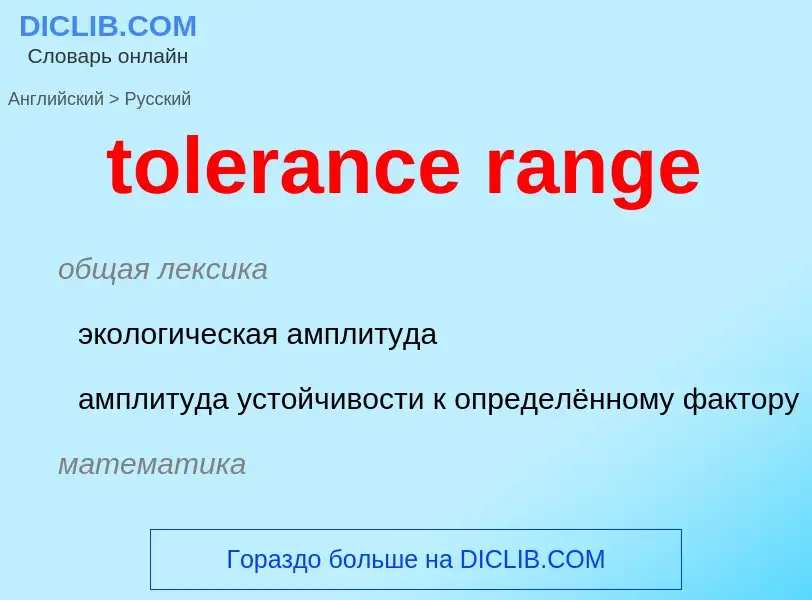Tradução e análise de palavras por inteligência artificial ChatGPT
Nesta página você pode obter uma análise detalhada de uma palavra ou frase, produzida usando a melhor tecnologia de inteligência artificial até o momento:
- como a palavra é usada
- frequência de uso
- é usado com mais frequência na fala oral ou escrita
- opções de tradução de palavras
- exemplos de uso (várias frases com tradução)
- etimologia
tolerance range - tradução para russo
общая лексика
экологическая амплитуда
амплитуда устойчивости к определённому фактору
математика
область допустимых значений
строительное дело
диапазон (область) допустимых значений (физических величин)
общая лексика
назначение допусков
установление допусков
Definição
Wikipédia
Drug tolerance or drug insensitivity is a pharmacological concept describing subjects' reduced reaction to a drug following its repeated use. Increasing its dosage may re-amplify the drug's effects; however, this may accelerate tolerance, further reducing the drug's effects. Drug tolerance is indicative of drug use but is not necessarily associated with drug dependence or addiction. The process of tolerance development is reversible (e.g., through a drug holiday) and can involve both physiological factors and psychological factors.
One may also develop drug tolerance to side effects, in which case tolerance is a desirable characteristic. A medical intervention that has an objective to increase tolerance (e.g., allergen immunotherapy, in which one is exposed to larger and larger amounts of allergen to decrease one's allergic reactions) is called drug desensitization.
The opposite concept to drug tolerance is drug reverse tolerance (or drug sensitization), in which case the subject's reaction or effect will increase following its repeated use. The two notions are not incompatible and tolerance may sometimes lead to reverse tolerance. For example, heavy drinkers initially develop tolerance to alcohol (requiring them to drink larger amounts to achieve a similar effect) but excessive drinking can cause liver damage, which then puts them at risk of intoxication when drinking even very small amounts of alcohol.
Drug tolerance should not be confused with drug tolerability, which refers to the degree to which overt adverse effects of a drug can be tolerated by a patient.



